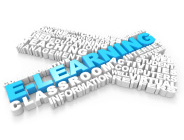- You are here:
- Home »
- Blog »
- CMA Review Courses »
- CMA Online Coaching vs Live Class: Which is Better?
CMA Online Coaching vs Live Class: Which is Better?

Here are the pros and cons, as well as my personal opinion. First, let’s take a look at the benefits of live classes.
Pros of Live CMA Classes
Some people learn better in a classroom setting. We all learn differently and have varying learning styles. While one person may be good at self-study and keeping themselves motivated and on task, another might need a more structured environment in order to achieve the same goals. If a structured classroom environment works for you, you may consider live CMA classes to help you prepare for the exam vs. a self-study program.
There are benefits to taking a CMA prep course in a classroom setting. Let’s take a look at them now.
First, you get to meet other candidates who can potentially be great study buddies. Next, it is easier to interact with your peers and lecturers, and it’s is especially helpful if your lecturer is able to go through the concepts with you in person.
Third, for some people, it is easier to focus and pay attention when you’re in a live classroom setting. You can take notes, and many people absorb the information better in this setting. Now, let’s take a look at some limitations of this type of CMA study prep.
Limitations
1. Quality of Lecturer Not Guaranteed
In reality, these live classes may not be as ideal as one might imagine. First of all, it is not easy to actually form study groups with fellow students because of various commitments. This comment comes from my first-hand experience when I attended a live class for my CPA exam, as well as from numerous readers asking for help in getting study buddies when they are already taking a local class. It’s the type of thing you spend more time trying to organize than you do actually benefitting from it.
More importantly, the quality of the lecturer is not guaranteed. Most of these live classes use CMA prep course materials from major providers (mostly Wiley, but also HOCK and Gleim) and hire people as lecturers. You don’t know that the people giving the lectures are experts in the content they are teaching. They are mostly junior accountants who want to earn extra income from part-time jobs.
There are obviously some great lecturers out there, but the majority of them are – to put it bluntly – no better than you, other than the fact that they may have obtained the CMA certification a couple of years earlier.
This is a typical email I got from a reader:
Dear Stephanie, thanks for your mail. My story is very sad. I had joined CMA in Jan 2013 and till today I have failed 2 times and little bit demotivated as to how to proceed further.Please let me know shall I proceed with X only and should not buy any other review course, or I should take coaching again from any institute and then I should sit in the exam. I had taken coaching but unfortunately I didn’t find that good and everything I had to prepare my self which I did but unfortunately failed so by changing review course I can pass?”(X refers to an Indian coaching institute whose name is hidden for protection of its reputation)
Sometimes, instructors may even lack integrity, as shown in this comment from a reader:
Dear Stephanie,
I started to study indeed because I’m planning to enter the exam in May. I was surprised that CMA topics are the same that I studied in the faculty of commerce.
Yesterday I compared the material written by our instructor (in CMA preparation course) with The Accounting Principles Book written by Weygandt Kieso Kimmel (which I took in commerce classes) . It was identical in text. It is obvious that my instructor copied and pasted that in…Actually I regret that I didn’t study by myself. Anyway I would be pleased to be on your CMA newsletter. It makes me feel better.”
Fellow reader Yasin also left a comment asking for help because he didn’t understand Part 1 concepts even after taking a local private coaching class. Yasin is not alone. This is so common and it’s one reason why I put so much time and energy into this site and creating these helpful pages for you.
I get emails and comments like this every week. The list goes on and on. I know how hard some candidates have struggled to properly prepare for the CMA exam, and I know from firsthand experience what kind of help is out there (and what doesn’t work.
2. International Candidates: The Issue of Learning the Materials in a Local Language
Now let’s look at another issue that international candidates face. One of the major reasons for students taking a live class is that the course is taught in their local language. Although I agree that it is most efficient to learn in a language you are most comfortable with, remember that the US CMA exam is available in English only (except in China, where the exam is available in Mandarin). Therefore, you will have to take the exam in English.
In my opinion, by not hearing and using enough of the terms in English, you increase your disadvantage of being a non-native English speaker. This is why many international candidates cannot complete the test on time because they take too long to comprehend the questions in English. They didn’t realize this issue until the exam day. It was clearly too late.
Conclusion: Is Online Coaching or Live Classes Right for You?
There are obvious benefits to taking a live CMA class. However, you must do extensive research on the quality of the lecturer you will be getting. Do they have a passion for teaching? Do they know the materials? Do they care about their students? Or are they mediocre part-timers who try to earn a living on the side?
They help people pass the CMA exam on a global basis, not just in your local community. If they don’t deliver excellent products, people (like me on this site, other bloggers, and forum members) write about it, so they always work hard to maintain a high standard. There are links to these providers at the bottom of this page.
Choosing a Live Class as a Non-Native English Speaker
If you are a non-native English speaker, I understand the frustration of going through the tedious studying, and it is very tempting just to sign up for a course that would go through all materials and multiple choices in your local language.
For most candidates, this would be a mistake.
I would do the opposite and take the opportunity to immerse myself in English as much as possible. If you don’t understand accounting terms, learn them. In addition, if it takes too long to read an English paragraph, start reading the New York Times or the Wall Street Journal to improve your reading and comprehension. If writing is an issue, start writing your journal in English today.
It takes time, courage, and commitment. But it’s worth it.
Improving your English ability makes sense for your short-term goal (passing the CMA exam) and long-term aspiration of becoming a respected accounting professional in your country and beyond. Ultimately, the purpose of getting a US qualification such as the CMA is to improve your international profile, your mobility, and your chance to work anywhere in the world.
Let me share a blogger story to help you see this more clearly.
 My Blogger’s Experience
My Blogger’s Experience
Find out what my blogger decided and how things worked out. Did Yen choose live coaching class or self-study at the end?
Yen is from Vietnam and joined our blogger community after completing her CMA exam in September 2015. Yen reflects on her 2-year journey with her posts every Thursday.
As mentioned in my last post, I aim to write down the important decisions and milestones of my CMA journey. I hope my experience can help other candidates currently studying for the exam.
Should You Enroll in a Class or Self-Study for CMA?
Have you ever considered enrolling in a CMA class, or are you thinking about a self-study course?
At first, I registered for the CMA course. We had to study 3 hours per day and three days per week after working hours. And this is what I found: IF YOU GET SOMETHING EASY, YOU LOSE IT EASY TOO.
From day 1, I was passionate about learning. However, my diligence did not remain long. Sometimes I couldn’t go to class because of my paperwork; I couldn’t leave my office on time if I had too much paperwork to finish. In fact, many reasons can prevent you from coming to the evening class.
Sometimes I was present in class but could not concentrate. I don’t know what the teacher was talking about. I lost my motivation and knew that I could not study when my brain and body got tired. CMA became something that made me suffer a lot, and I gave up after three months of studying like this.
After three months, I knew I must restart. This time, I decided to read the Wiley book by myself. In the beginning, the huge and thick book gave me many new words. However, this time I got over it. Reading a book takes me so much time, but I enjoy it whenever I find useful knowledge by myself.
That is only my experience. In fact, many students pass the CMA exam by studying for an evening class. Human is different, and we are not in the same condition. If your workload is not heavy, and you don’t have the habit of reading, entering a class should be the best choice for you.
Thanks for your reading,
Yen
Note from Stephanie
Hello, Yen! Your blog post is unique because you have passed the exam and your sharing reflects a completed journey. It is interesting because it gives us readers a different perspective.
I especially like what you said, “IF YOU GET SOMETHING EASY, YOU LOSE IT EASY TOO.” Self-study (reading a textbook or taking an online course) is the way to go in the US. However, I believe “coaching classes” are still popular in other countries.
In these classes, the instructors often teach in the local language and give you lecture notes that suit the style of local candidates. They are trying hard to help, but what candidates don’t realize until too late is that this is a US Exam: you cannot pass unless you read, learn, write, and breathe in English for a few months.
As Yen said, some people pass taking evening live classes, of course, but I’ve seen too many failures among my readers. So I feel the need to speak up.
If interested, I have a more elaborate discussion here.
- Yen’s Next Post on Nov 3: Practicing Multiple Choice Questions is the Most Important
Do you have more questions about the CMA exam, review courses and programs, or online coaching that I have not answered here? Please leave a comment and let me know so I can answer your questions. My goal is to make this site as comprehensive as possible to help CMA candidates in every aspect of their CMA certification.
Further Reading:
About the Author Stephanie Ng
I am the author of How to Pass The CPA Exam (published by Wiley) and the publisher of this and several accounting professional exam prep sites.

